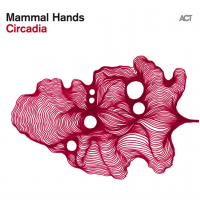Home » Jazz Articles » Multiple Reviews » Tony Bennett And Bill Evans: The Classic Duets
Tony Bennett And Bill Evans: The Classic Duets
Despite their shared musical priorities and similar artistic sensibilities, Evans and Bennett are not necessarily the ideal coupling.
Originally released in 1975, this recording has already proven its claim to a place in Bennett's lasting legacy. Yet, despite their shared musical priorities and similar artistic sensibilities, Bennett and Evans are not necessarily the ideal coupling. Bennett exudes unmistakable sincerity and a radiance that seeks and usually attains consummation in dramatic climaxes expressed through full-voiced, upper-register "big" notes. (G to Bb above middle C are notes he particular favors, pitches right in his wheelhouse and requiring no falsetto finessing).
There's complex drama and unrelenting passion in Bill Evans' playing, even in his accompanying settings, but of a decidedly less sanguine and melodramatic nature than the emotive, frequently exuberant singing of his partner. (One can only fantasize a meeting matching Evans' deeply introspective, probing explorations with the elegiac timbre and breath-defying phrasing of Sinatra's organically whole, indivisible song-stories during an optimal moment in either's career). Tony Bennett And Bill Evans
Tony Bennett And Bill Evans
The Tony Bennett/Bill Evans Album
Fantasy
2006
Much of the creative tension in this undeniably successful encounter is supplied by the dense textures of Evans' block-chorded harmonies and single-note counter-melodies— preventing the vocalist from admitting too much sun into the songs that don't invite it. In many respects, this Fantasy date is Evans' "schooling" of Bennett for the one to follow.
Added to the original nine tracks of the first meeting are five out-takes, including a version of "Young And Foolish" that arguably outshines the master version. This time the pair include the song's verse, providing a set-up that encourages the vocalist to hold back just sufficiently to register more fully the song's exquisitely sad sentiments about an irretrievably golden moment.
The decision, on the other hand, to reject the first take of Ray Noble's "The Touch Of Your Lips," despite its lovely opening piano chorus, seems supported by the empathetic balance and less frenzied quality of the master take (though as the target note of the tune's developing melodic phrase, the word "lips" continues to offer perhaps any vocalist, including Bennett, a special phonetic challenge).
Leonard Bernstein's "Some Other Time" and Cy Coleman's "When In Rome" play especially well to the respective strengths of the duo, the first tune incorporating the minimalist impressionistic beauty of Evans' "Peace Piece" and the second welcoming if not exploiting the spritely gemutlichkeit that is practically a Bennett trademark. That playful, vibrant quality helps prevent Evans' "Waltz For Debby" from becoming overly sentimental in this slowed-down version that amounts to a lingering, somewhat rueful farewell to youth and innocence.
Victor Young's "My Foolish Heart" along with Jimmy Van Heusen's "But Beautiful" both receive deliberative, emotional readings, with Bennett coming off best on the latter of the two ballads by once again employing a subdued approach. His is a voice with a tendency toward two extremes: an exploding brilliance in the upper-register, fortissimo passages; hushed "song-speech" in the lower-register, pianissimo passages, or when the lyrics call for a more introspective, meditative mood.
The main challenge for Bennett is often a matter of finding that "middle ground," where the "grain" of the voice and breath support are alone sufficient to communicate the song's lyrical meaning, without any forced or inappropriate drama. With unforgiving songs such as these, each representing popular music elevated to sublime and demanding art—a sort of American lieder—a well-sung note in the wrong place can easily rupture the delicate match between music and meaning.
 Tony Bennett And Bill Evans
Tony Bennett And Bill Evans
Together Again
Concord Records
2003
Bennett and Evans' next meeting, Together Again, originally released in 1977 and, like the first disc, reissued as recently as 2003 (unfortunately, deleting three tracks from the 21-track 1999 edition on Rhino), is arguably more successful than its far better known predecessor. To my ears Evans' playing on the sequel is more extroverted and fully textured, while Bennett's trademark enthusiasm and sincerity are tempered by more thoughtful, text-centered readings of the songs.
At times Bennett may be trying too hard to match Evans' romantic lyricism and passionate intensity, as on the alternate take of "Make Someone Happy," where his over-reaching leads to some sloppy vocal elocution, no doubt the reason for the rejection of Evans' inspired solo on the first take. On "You Must Believe In Spring," on the other hand, the two achieve a more satisfying equanimity. Bennett keeps the entire lyric carefully contained, singing sotto voce all the way, while Evans takes upon himself the burden of supplying the ironic, non-verbal drama of the song, becoming engaged in complex, building, emotive rhapsody during his solo turn.
No doubt both of these sessions will mean more to Bennett's lasting legacy than the recent extravaganza produced by Phil Ramone, but one might at least hope for a hat trick, especially at this propitious moment when the vocalist is still in excellent voice. There's a singularly moving (though, unfortunately, virtually ignored) Bennett tribute album by a "mature" Jack Jones (Paints A Picture Of Tony Bennett, Honest, 1998) that owes much of its ineffable, inexhaustible beauty to the arranging and accompanying of pianist Mike Renzi. It would seem a shame if Bennett were not to get that guy's number, the sooner the better.
Tracks and Personnel
The Tony Bennett/Bill Evans Album
Tracks: Young And Foolish; The Touch Of Your Lips; Some Other Time; We'll Be Together Again; My Foolish Heart; Waltz For Debby; But Beautiful; Days Of Wine And Roses; Young And Foolish (Take 4); The Touch Of Your Lips (Take 1); Some Other Time (Take 7); When In Rome (Take 11); Waltz For Debby (Take 8).
Personnel: Tony Bennett: vocals; Bill Evans: piano.
Together Again
Tracks: Lucky To Be Me; Make Someone Happy; A Child Is Born; The Two Lonely People; You Must Believe In Spring; You're Nearer; Maybe September; Lonely Girl; You Don't Know What Love Is; The Bad And The Beautiful; Who Can I Turn To?; Dream Dancing; A Child Is Born (Alt.); You Must Believe In Spring (Alt.); You're Nearer (Alt.); Maybe September (Alt.); You Don't Know What Love Is (Alt.); The Bad And The Beautiful (Alt.).
Personnel: Tony Bennett: vocals; Bill Evans: piano.
Tags
PREVIOUS / NEXT
Support All About Jazz
 All About Jazz has been a pillar of jazz since 1995, championing it as an art form and, more importantly, supporting the musicians who make it. Our enduring commitment has made "AAJ" one of the most culturally important websites of its kind, read by hundreds of thousands of fans, musicians and industry figures every month.
All About Jazz has been a pillar of jazz since 1995, championing it as an art form and, more importantly, supporting the musicians who make it. Our enduring commitment has made "AAJ" one of the most culturally important websites of its kind, read by hundreds of thousands of fans, musicians and industry figures every month.


















